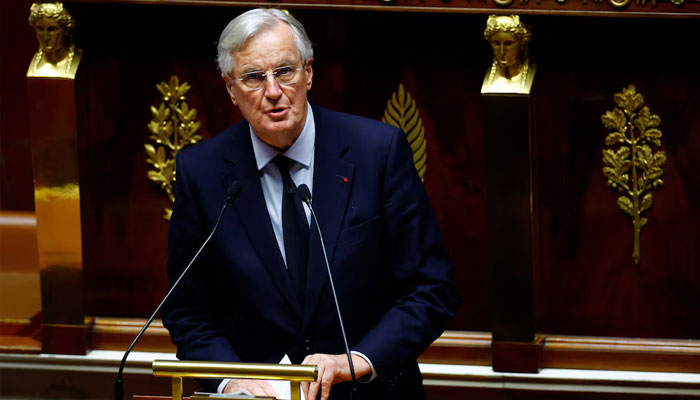
The French government is certain to collapse later this week after far-right and left-wing parties submitted no-confidence motions on Monday against Prime Minister Michel Barnier. Reuters I mentioned.
Investors immediately punished French assets, as recent developments pushed the euro zone’s second-largest economy into a deeper political crisis, with serious doubts over whether the annual budget will be approved.
“The French have had enough,” Marine Le Pen, leader of the National Rally party, told reporters in parliament, adding that Barnier, who only became prime minister in early September, had made matters worse and should be removed. “We are proposing a motion of no confidence in the government,” she said.
Barring a last-minute upset, Barnier’s fragile coalition will be the first French government forced to resign through a vote of no confidence since 1962.
The collapse of the government would leave a hole in the heart of Europe, with Germany also entering election mode, weeks before US President-elect Donald Trump returns to the White House.
Combined, the National Front and Left lawmakers have enough votes to oust Barnier, and Le Pen confirmed that her party will vote in favor of the no-confidence bill introduced by the leftist coalition as well as the National Front’s bill. This vote is likely to take place on Wednesday.
The parties announced their motions of no confidence after Barnier said earlier on Monday that he would try to pass the social security bill through parliament without a vote as a last-minute concession proved insufficient to win the National Front party’s support for the legislation.
“In the face of this repeated denial of democracy, we will blame the government,” said Mathilde Pannot of the left-wing France Unbent party. “We are living in political chaos because of the government of Michel Barnier and the presidency of Emmanuel Macron.”
The spread between French bonds and the German index widened further and euro selling increased.
Since Macron called early elections in early June, France’s CAC 40 index has fallen almost 10%, the lowest index among the EU’s major economies. It closed flat on Monday after falling more than 1% earlier in the day.
Blame game
Barnier urged lawmakers not to support a vote of no confidence.
He said, placing the fate of his government in the hands of the divided parliament, which is the result, “We are in the moment of truth… The French will not forgive us for putting the interests of individuals before the future of the country.” And inconclusive early elections called by Macron in June.
Barnier’s minority government relied on the support of the National Front for its survival. The budget bill, which seeks to rein in France’s spiraling public deficit by raising taxes and cutting spending by 60 billion euros ($63 billion), cut that fragile link.
Both Barnier’s entourage and Le Pen’s camp blamed the other, saying they had done everything in their power to reach an agreement and were open to dialogue.
A source close to Barnier said that the Prime Minister had made major concessions to Le Pen, and that voting to topple the government would mean losing those gains.
“Is she willing to sacrifice all the gains she has earned?” The source told Reuters.
If a vote of no confidence is indeed held, Barnier will have to resign, but Macron may ask him and his government to remain in a caretaker role to run day-to-day business while he seeks a new prime minister, which could happen only next year.
One option is for Macron to appoint a government of technocrats without a political programme, in the hope that this will help him survive a vote of no confidence. In any case, new early parliamentary elections cannot be held before July.
Regarding the budget, if Parliament does not adopt it by December 20, the interim government can use constitutional powers to pass it by decree.
However, this would be risky as there is a legal gray area around whether a caretaker government can use such powers. This will certainly cause an uproar among the opposition.
The most likely step is for the interim government to propose special emergency legislation to extend spending limits and tax provisions starting this year. But this means that the savings measures planned by Barnier will fail.
